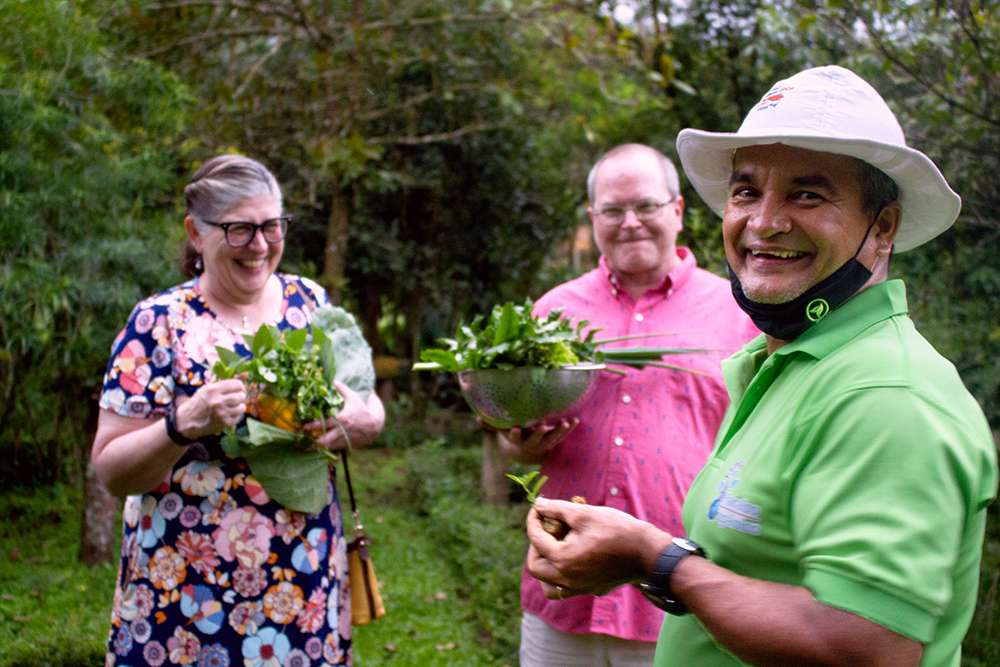What is Sustainable Tourism? According to the costarican tourism board (ICT) "Sustainable tourism development should be seen as the balanced interaction between the appropriate use of our natural and cultural resources, the improvement of the quality of life of local communities, and the economic success of the activity; it must also contribute to national development. Tourism sustainability is not only the response to demand but is an essential condition for competing successfully now and in the future." (Definition from Tourism Sustainability, CST 1997).
Costa Rica has been recognized as a model of sustainability for the world. When tourism is managed sustainably, everyone benefits: the environment is protected, tourism entrepreneurs profit, wealth and employment are generated, and, as a result, communities thrive. Wealth generation is essential because if there is no economic benefit for the entrepreneur and the surrounding community, people will seek other ways to earn a living that may not prioritize environmental protection.
Environmental protection can and must be profitable for it to be sustainable, and in Costa Rica, we have the great advantage that the tourist destination attracts people who value these conservation efforts and are willing to pay a bit more to support them.
The Transformative Impact of Sustainable Tourism on the Communities of Costa Rica and Panama
In a world where sustainability has become a global priority, sustainable tourism presents a unique opportunity to transform communities and create a lasting positive impact. In Costa Rica, Panama, and many other countries in Latin America, which are enormously rich in biodiversity and culture, sustainable tourism is not just a trend but an urgent necessity.
Challenges and Opportunities
Tourism entrepreneurs in these regions face challenges such as seasonality, intense competition, and the need to comply with environmental regulations. However, these challenges also open the door to significant opportunities. Implementing sustainable practices can differentiate a business in a saturated market, attracting conscious tourists who seek authentic and responsible experiences.
Benefits of Sustainable Tourism
Adopting sustainable tourism practices not only benefits the environment but also local communities. Some of the most notable benefits include:
- Creation of Local Employment: Sustainable initiatives often require local labor, helping to create jobs and strengthen the local economy.
- Cultural Preservation: By focusing on authentic experiences, sustainable tourism encourages the preservation of local traditions and cultures, avoiding cultural homogenization.
- Environmental Conservation: Protecting biodiversity and natural resources is fundamental to sustainable tourism, ensuring that future generations can enjoy the region’s natural wonders.
- Customer Loyalty: Tourists who value sustainability tend to be more loyal and promote positive experiences, generating word-of-mouth marketing.
Overcoming Misconceptions
Despite its benefits, sustainable tourism faces misconceptions that may discourage its adoption. It is crucial to understand that sustainability is not only for large companies, nor is it necessarily expensive. With the right tools and strategies, even small entrepreneurs can implement sustainable practices that are both profitable and effective.
The Role of Technology
Technology plays a crucial role in facilitating sustainable practices. From energy management systems to digital platforms promoting sustainable experiences, technology can be a powerful ally. It is important for entrepreneurs to become proficient in using these tools to maximize their impact.
Looking into the Future
The future of tourism in Costa Rica and Panama is promising. Entrepreneurs who adopt a sustainable approach will be better positioned to lead the way toward responsible and successful tourism development. With the right support, they can become role models, demonstrating that it is possible to achieve the perfect balance between profitability and sustainability.
Conclusion
Sustainable tourism has the potential to profoundly and positively transform communities. By overcoming current challenges and seizing opportunities, tourism entrepreneurs in Costa Rica and Panama can play a key role in building a more sustainable and prosperous future. Sustainability is not just an option; it is a future vision worth pursuing.
